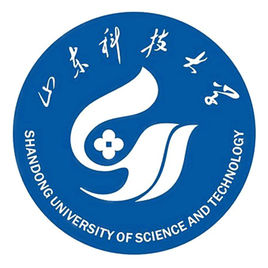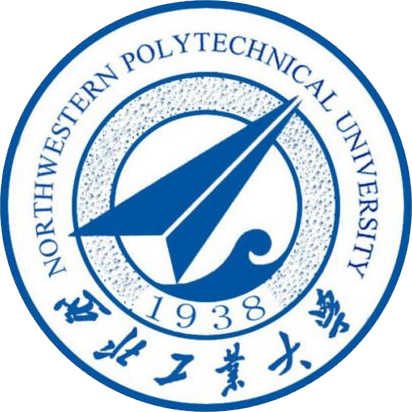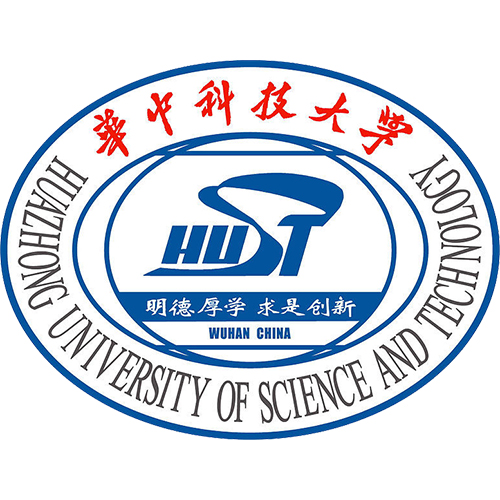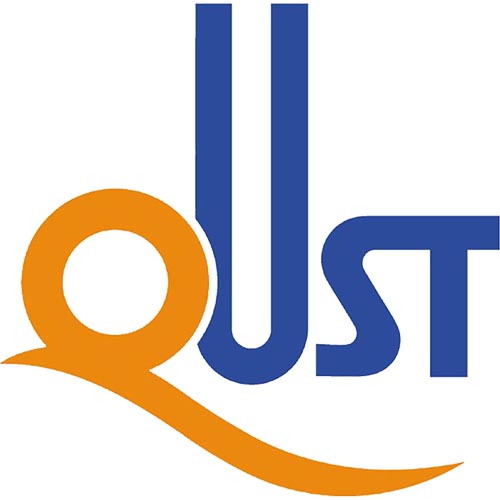
 Introduction
Introduction About the Program
About the Program
The Communications Engineering specialty program provides training in wireless data systems, and wireless applications, signal processing , IP traffic networking, micro-controller ,embedded systems, communication systems, electric circuit, simulation electronic technology, numeral electronic technology, high frequency electronic circuit, signal and system, electromagnetic field ,electromagnetic wave, digital signal processing, mobile communications, etc.
 Please click here to download the curriculum schedule.
Please click here to download the curriculum schedule.
Telecommunication engineering class(click the pic to enlarge)
Laboratory of SDUST(click the pic to enlarge)
Internship and Career Development
This program values the combining of theory and practice, so the practical projects driven studies are encouraged and supported while taking the professional courses.
International students internship(click the pic to enlarge)
International students internship(click the pic to enlarge)
Further Study: Graduates with bachelor's degrees in Communications Engineering enjoy an advantage when applying for a master's degree program. Some with excellent performance during undergraduate study could be directlyadmittedwithout any examinations
Employment PerspectivesStudents may be employed in all sorts of communications and electronic related industries upon graduation:
1.Information acquirement and security related companies, such as digital camera producing companies, information security related companies, security department in bank and other companies, security department in governments, etc. 2.Information transmission related companies, such as communications equipment manufacturing companies (cell phone manufacturing companies, digital TV manufacturing companies), communication network operator companies, multimedia communications companies, etc. 3.Information processing related companies, such as Internet service providers (ISP), consumer electronic companies. They can also move into other areas such as entrepreneurship and consulting. Another developing opportunity is in sales engineering and technical service. This involves the service and testing functions for various types of equipment in the industry.
The Communications Engineering specialty program provides training in wireless data systems, and wireless applications, signal processing , IP traffic networking, micro-controller ,embedded systems, communication systems, electric circuit, simulation electronic technology, numeral electronic technology, high frequency electronic circuit, signal and system, electromagnetic field ,electromagnetic wave, digital signal processing, mobile communications, etc.
 Please click here to download the curriculum schedule.
Please click here to download the curriculum schedule.
Telecommunication engineering class(click the pic to enlarge)
Laboratory of SDUST(click the pic to enlarge)
International students internship(click the pic to enlarge)
International students internship(click the pic to enlarge)
Further Study: Graduates with bachelor's degrees in Communications Engineering enjoy an advantage when applying for a master's degree program. Some with excellent performance during undergraduate study could be directlyadmittedwithout any examinations
Employment PerspectivesStudents may be employed in all sorts of communications and electronic related industries upon graduation:
1.Information acquirement and security related companies, such as digital camera producing companies, information security related companies, security department in bank and other companies, security department in governments, etc. 2.Information transmission related companies, such as communications equipment manufacturing companies (cell phone manufacturing companies, digital TV manufacturing companies), communication network operator companies, multimedia communications companies, etc. 3.Information processing related companies, such as Internet service providers (ISP), consumer electronic companies. They can also move into other areas such as entrepreneurship and consulting. Another developing opportunity is in sales engineering and technical service. This involves the service and testing functions for various types of equipment in the industry.
 About Shandong University of Science and Technology
About Shandong University of Science and TechnologyShandong University of Science and Technology (SDUST), a key university of Shandong Province with distinct features, offers multidisciplinary education in engineering, sciences, management, literature, law, economics and education while giving prominence to engineering and is noted for mining technology.
The University now has 3 campuses located respectively in Qingdao, Tai’an and Jinan, covering a total area of 243.16 hectares with a floor space of 1.35 million square meters.
The University comprises 16 academic colleges, 9 departments and 1 independent college. There are 7 post-doctoral research stations, 6 level-1 doctoral programs with 31 disciplines/specialties conferring doctor’s degrees, 21 level-1 master’s degree programs with 111 disciplines/specialties conferring master’s degrees, 6 professional master’s degree domains conferring 19 engineering degrees, and 75 undergraduate programs.
The University boasts 1 state key discipline (under construction), 41 provincial and ministerial key disciplines/laboratories/engineering centers, including 1 key laboratory and 1 engineering research center invested by the Ministry of Education, 2 provincial key research bases of social sciences,1 provincial research base of soft science, 2 Qingdao City key laboratories, 9 Taishan Scholar discipline posts. Also attached to the University are 1 professional center with an authorization of the National Manufacturing Informationization Training Center, 1 foreign language training center under the State Administration of Foreign Experts Affairs, Shandong-Russia Center of Scientific Cooperation, and Qingdao Manufacturing Informationization Personnel Cultivation Base. The Russian Academy of Natural Sciences set up a China Science Center at the University, the only one in China.
SDUST currently enrolls over 44,600 full-time students, including more than 5500 master’s and doctoral candidates and 9600 from the independent college. Among a faculty and staff of over 2900, there are 2000 full-time teachers including 257 professors and 433 associate professors, 3 academicians of the Chinese Academy of Sciences, 1 academician of the Chinese Academy of Engineering, 5 foreign academicians of the Russian Academy of Natural Sciences, 9 Taishan Scholar Program professors, 3 candidates of the New Century State Talents Project, 3 candidates of the New Century Talents Supporting Project of the Ministry of Education, 5 young and middle-aged state-level experts with outstanding contributions, 58 recipients of special state government subsidies, 10 provincial-level young and middle-aged experts with outstanding contributions, 37 provincial/ministerial level topnotch professionals, and 137 supervisors of doctoral candidates, 10 national Model Teachers/Teachers of Excellence, 19 provincial Teachers of Excellence and 6 provincial Outstanding Teachers.
There are 6 national feature specialties and 11 provincial brand/feature specialties; 1 state-level experiment teaching demonstrative center and 7 provincial experiment teaching demonstrative center; 2 national quality courses and 17 provincial quality courses; 1 state-level teaching team and 4 provincial-level teaching teams; 1 national innovation experiment zone for elite cultivation. In recent years, the University won 4 second-class awards of the National Teaching Achievements and 70 awards of the Provincial Teaching Achievements. The University has cultivated over 140,000 personnel so far and the employment rate of its graduates has maintained a high level. And in the national undergraduate programs teaching evaluation conducted by the State Education Ministry in 2007, SDUST was placed in Category A .
SDUST is noted for its strengths in basic and applied research and scientific development owing to its multidisciplinary features. It boasts solid academic foundation and advantages in Mining Engineering, Surveying and Mapping Science and Technology, Geological Resources and Engineering, Control Theory and Control Engineering, Computer Software and Theory, Geotechnical Engineering, Mechatronic Engineering, and Mechanical Design and Theory. The University now houses over 90 research institutes in such domains as engineering, technology, humanities and social sciences. From the year 2004 to 2009, the University has undertaken 3777 research projects, including 137 from Project 863 (National Hi-tech Research and Development Program), Project 973 (National Basic Research Development Program), State Key Sci-tech Projects, National Pillar Sci-tech Programs in the 11th Five-year Plan Period, National Natural Sciences Fund key projects, National Outstanding Youth Foundation projects, key international co-operative projects of National Natural Sciences Fund, state key international co-operative projects, and inter-governmental sci-tech co-operative projects, etc;748 provincial/ministerial projects and 2854 technical development and service projects. 531 monographs and 9868 *****s were published, among the latter 1478 were collected by SCI, EI and ISTP. 330 research projects were authenticated and 124 patents obtained; 205 projects were awarded—4 national awards and 201 provincial ones. In the past 6 years scientific research funds totaled 875.37 million yuan RMB, and reached 202.18 million yuan RMB in 2009.
SDUST successfully initiated a provincial-level university science park which has been admitted to the Incubation Base of the National New and High-Tech Pioneer Service Center at the Qingdao Economic and Technological Development Zone, with a total of over 50 enterprises and research entities, covering machinery and electronics, environmental protection, IT, architectural design and vocational training, etc. And technologies like plasma cladding, mine safety multifunction drill, self-excitation vibrating-wire sensors have reached national/international standards and obtained ideal social and economic benefits.
The University actively participates in international exchange and cooperation with a view to promoting internationalization of education. It has established cooperative relationship with 90 higher learning institutions and research institutes in 18 countries including the USA, Japan, Germany, Russia, France, etc., 6 Sino-foreign joint laboratories have been set up and over 50 cooperative projects initiated. Joint-education and student exchange programs have been started with countries like the United States, France, Germany, Australia, etc. International students from more than 20 countries come to SDUST for degree or short term studies. The University hosts or sponsors large-scale international academic conferences annually and more than 20 faculty are members of various international academic institutions.
The University edits and publishes Journal of Shandong University of Science and Technology (natural sciences edition), Journal of Shandong University of Science and Technology (social sciences edition) and News***** of Shandong University of Science and Technology.
The University, with a history of more than half a century, has cultivated its fine ethos of Unity, Diligence, Truth-seeking and Innovation. It will spare no efforts to build itself into a high level multidisciplinary research university with strong engineering disciplines and mining technology.
 Accommodation
Accommodation
Accommodation and Service
All the international students can live in the International Students Apartment on Qingdao campus. There are two types of room: single room and two-bed room. The single room is equipped with the independent toilet, air-conditioning, desk and chair, wardrobe , laundry and bedding items. The double room is equipped with the public toilet, air-conditioning, desk and chair, wardrobe and bedding items.
Campus Accommodation Expenses
Accomodation Fee
International Students Apartment
Double Room
RMB 7,500
Quad Room
RMB 3,300
Single Room
RMB 13,000
Triple Room
RMB 4,400
Living Facilities and Conditions
International students can both dine in the campus canteen and cook meal in dormitory kitchen. The expenses of food is approximately 600 CNY per month.
 Fees
Fees Admissions Process
Admissions Process  Entry Requirements
Entry Requirements1. High school graduate or above, or have passed Grade Twelve (10+2)/FSc./A Level/WAEC or equivalent.
2. Aged 18 or above and with a good health
3. No Chinese-citizen with foreign passport
 Application Materials
Application Materials Reviews
Reviews
Northwestern Polytechnical University
Tuition
Start Date

Huazhong University of Science and Technology
Tuition
Start Date

Qingdao University of Science and Technology
Tuition
Start Date